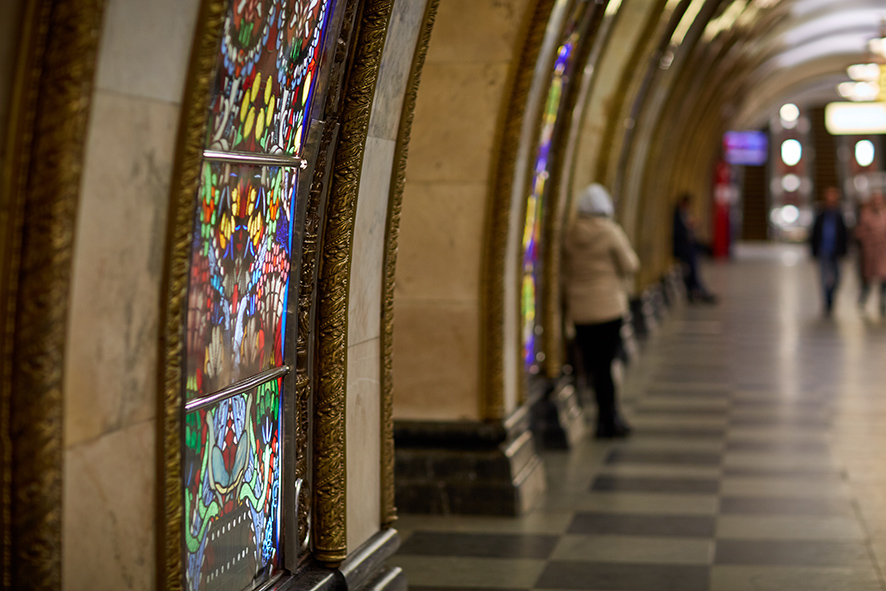Catholic women accommodating a male-dominated Church? A series.
Catholic women accommodating a male-dominated Church? A series.
The Catholic Church sends its women mixed messages. How do they take their place in their Church anyway?
This September 2022, EARS will publish an article series on women in the Catholic Church. While accommodating a male-dominated institution, women have developed various strategies in order to be able to fully participate in the Church. By being appointed to official positions, or ‘playing dumb to get ahead’, or even confronting the Church in academia or activism, women have opened other passages to the Church’s governance.
In this first article, we will be introduced to the issue of women’s marginalisation in the Catholic Church. In the coming weeks, we will become acquainted with Catholic women that make a difference by raising their voices.
The Catholic Church’s reluctance to change
On July 13th, 2022, Pope Francis appointed three women as full members of a Vatican office.[1] This was announced as a first, for women rarely have a say in the Catholic Church’s governance. Along with eleven men, they will begin serving in the Dicastery for Bishops, overseeing the work of most of the 5,300 Catholic bishops around the world.[2]
This nomination contrasts with a rather hostile context. For example, the French collective Toutes Apôtres (All Apostles) requested the creation of an independent commission on the situation of women in the Church.[3] The survey would aim at finding out how satisfied the women who work for the Church actually are. This was in July 2021. To the best of our knowledge, a year later, the collective has not yet received any reply from Church officials.
Another example comes from Australia. On July 9th, 2022, the plenary council of the Australian Catholic Church rejected motions that aimed at making room for the voices of women in the local churches. The Australian church effectively decided not to “foster new opportunities for women to participate in ministries and roles that are stable, publicly recognised, resourced with appropriate formation.” It also agreed that women should not be “appropriately represented in decision-making structures of church governance.” Some Catholic women argue that the demands of these motions were so basic that dismissing them meant “cancelling one half of the human race.”[4]
Catholic women are discriminated against
Besides, in 2021, Pope Francis enforced the prohibition on women becoming deacons or priests. Pope Benedict XVI had already classified the “attempted ordination of a woman,” with the sexual abuse of children, as one of the “gravest crimes” in the church.[5] Pope Francis added that even ordained men who support female priesthood would be condemned, silencing the debates over women’s call to ordination.[6]
Even with Pope Francis’s latest announcement, discussing women’s leadership seems to remain a taboo in the Catholic Church. As the Australian motion put it, the time when “the experiences and perspectives of women are heard, considered and valued” has not yet come.[7]
Still, changes are happening and Catholic women are rising. Some of them echo the voices of their predecessors, showing the world that women have always contributed to Christianity. Even uninvited, some found ways to express their faith and their vision for the Church in impactful ways.
Catholic women manage to be heard
In this series of articles, we are going to unpack ways Catholic women have made themselves heard in the Church. We will begin with the extraordinary Teresa of Avila, who was canonised in the 17th century. She was indeed exceptional, tackling the theological issues of her time even though she was forbidden to. A Spanish priest said, upon her canonisation:
“Sanctity in women usually consists in being quiet, obeying, staying in a corner and forgetting about oneself; O new miracle and rare prodigy! Not by keeping quiet, but by speaking, teaching and writing; not only by obeying, but by ordering, commanding, governing; not by observing enclosure but by travelling, disputing.”[8]
We will then look into women who spoke up at decisive moments in the recent history of the Catholic Church. Nun and ethicist Margaret Farley risked her career in the Church and in academia in order to draw attention to those who did not have a voice. Heterosexual couples who considered abortion, LGBTQ+ people who needed life-saving contraception during the AIDS epidemic, women who were called to ordained ministries… Farley devoted her work to raising other people’s voices and diversifying the Church.
Finally, we will get to know Alix Bayle, who co-created the feminist Catholic collective Toutes Apôtres (All Apostles). What does it imply, personally, intellectually, and spiritually, to advocate for reform in the Catholic Church? In this interview for EARS, Bayle will share her experience of what it looks like to speak up, as part of a gender minority in the Church.
Stay tuned this September and learn more about how women have been taking their place in the Catholic Church! Together, we will reflect on what their commitment means for women and societies today.
Want to read more about similar topics? Go to the EARS Dashboard.
Sources
[1] Pope names three women to Vatican’s Dicastery for Bishops
[2] Vatican names 3 women to office that vets bishop nominations – The Washington Post
[3] « Toutes Apôtres ! » réclame une commission indépendante sur la situation des femmes dans l’Église
[4] The church with no faith in its women
[5] Updates to Canon Law Fail to Correct the “Crime” of Women’s Ordination
[6] The Pope Is Toughening Church Laws On Sex Abuse, Fraud And The Ordination Of Women : NPR
[7] The church with no faith in its women
[8] Quoted in Lopez Estrada, Cohetes para Teresa, from a 1627 sermon by from the Jesuit Rodrigo Nino





